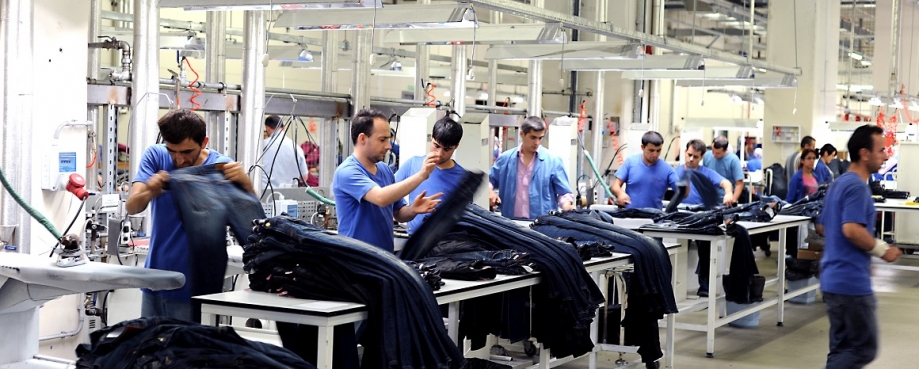
Dr Emre Eren Korkmaz reports on the conference to launch ETI’s Turkey Programme, held on 29 November in Istanbul. It facilitated a productive platform of dialogue and collaboration among stakeholders from the apparel & textile industry.
The conference was significant for two reasons. Firstly, it brought together stakeholders which represent 60% of Turkey’s apparel & textile export industry. These included retailers, suppliers, business associations, trade unions and NGOs. Secondly, it led to the creation of a steering committee which will provide the basis for long-term collaboration across the sector.
At the conference, participants discussed the priorities for collaboration and how to promote legal and decent employment for Syrian refugees working in Turkey’s apparel and textile industry. However, for me, it is the statement of joint-intent which was the most significant outcome of the conference. Whilst this is a positive first step forward, the focus now needs to be on delivering action.
Time to act!
A key aspect of the ETI Turkey Programme is to engage with the Ministry of Labour (MoL) and other authorities. It was in my capacity as a representative of the programme that I met the Undersecretary of the Ministry of Labour who is responsible for the Directorate of International Labour force. This is the body which grants work permits to Syrian refugees and others under temporary protection.
At last week’s meeting, I was glad to learn that MoL is reviewing its work permit regulations in order to simplify the application process. However, changes to regulations will only make a difference if they are effectively implemented.
What can be done?
Whilst MoL reviews its work permit regulations, I would like to share my thoughts on some of the changes to work permit regulations and processes which could promote the legal and decent employment of Syrian refugees and how ETI members can help. These include:
- Allowing refugees to work in a city where they are not registered: Syrian refugees can only obtain a work permit from the city where they are registered. If a refugee is living in a border town and, for example, finds a job in Istanbul they will need to apply to change their city of residence. However, this process can take a long time. MOL could abolish this requirement which can prevent refugees from taking up offers of legal employment
- Formalising labour networks: MoL acknowledges the role of labour networks in facilitating the employment of refugees. MOL could legalise some of these networks, accredit their agents and regulate client fees. This could provide an incentive for labour networks, and their agents, to promote legal and decent employment opportunities to refugees and reduce the fees that they demand
- Increasing company inspections: MoL could increase the number of inspections it carries out to ensure companies are complying with work permit regulations. This would act as an disincentive for companies employing workers without registration
- Improving access to educating for refugee children: Increasing the number of refugee children in full time education can help to keep them out of the labour marketing. MoL is currently working with other Ministries and stakeholders to support education initiatives designed to increase the schooling rate of refugee children. MoL should continue supporting these initiatives
- Ensuring refuges aren’t financially disadvantaged by working: When a refugee obtains a work permit and enters formal work, they lose the social and financial support provide by the government. The government could review its social support programmes to ensure that refugee families aren’t worse off if a member of the family enters the legal workforce
At the same time as the MoL considers its changes, it is important that ETI Turkey Steering Committee agrees roles and activities for each stakeholder in order to promote legal and decent employment of refugees.
Promoting legal and decent employment of refugees in Turkey’s labour market will accelerate the elimination of the informal sector. This will also benefit local workers who are facing an unfair competition from employers who are able to exploit vulnerable workers in the informal economy.
